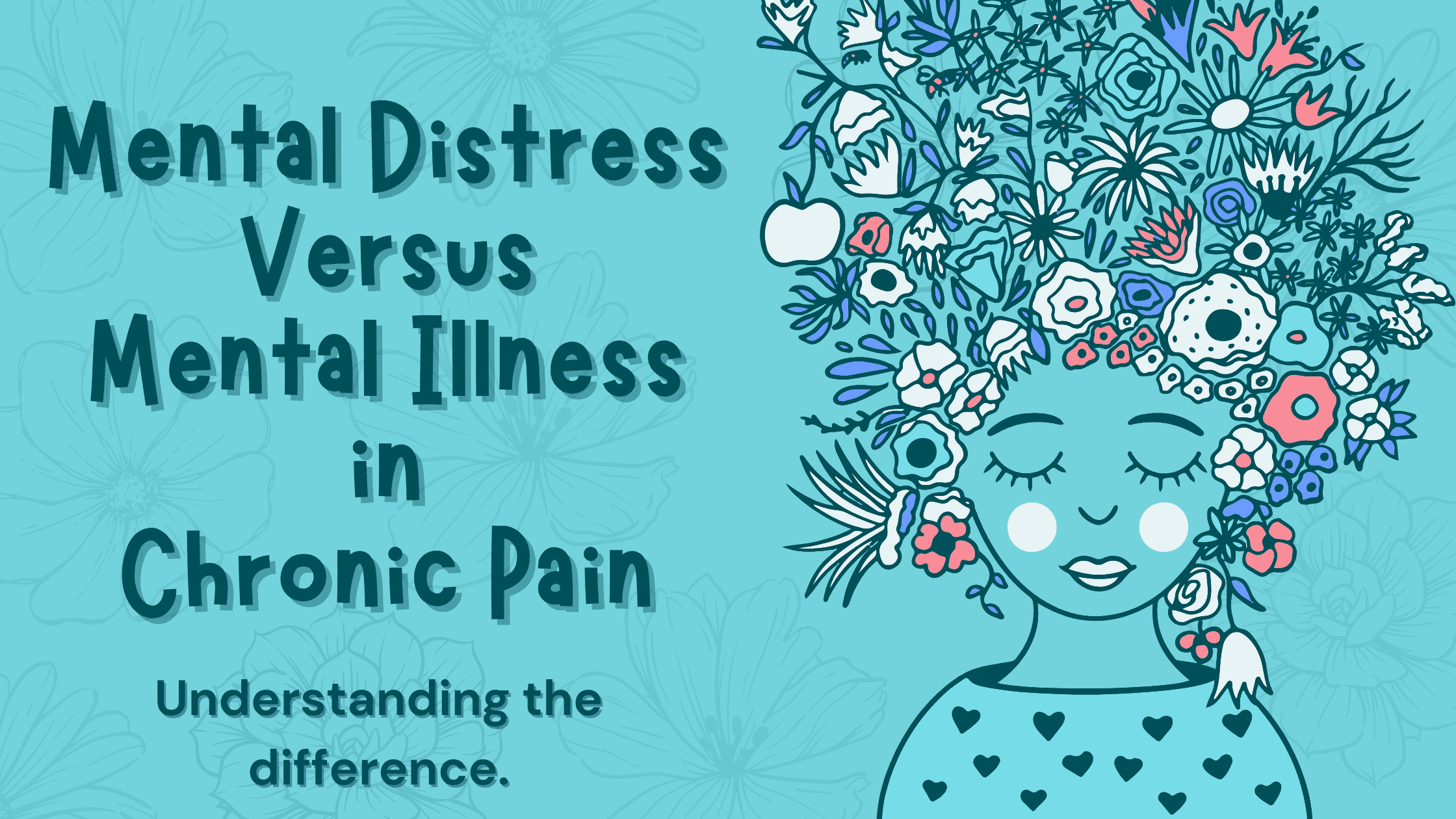As research into pain science continues to develop, it has become increasingly clear that chronic pain requires more than just one method to treat. In order to create a truly comprehensive treatment plan, it is critical to include interventions from education, nutrition, therapeutic exercise, and more. However, you may have found that even as a health or wellness practitioner it is extremely challenging to integrate these other areas of pain science into your practice and adopt a multi-modal approach to chronic pain treatment. Issues such as insurance, licensing, and education can prevent you from providing comprehensive care for your patients even when research clearly indicates the benefits of such a transition. A pain specialist coach employs this multi-modality approach to chronic pain treatment to provide more effective treatment for their patients and bolster their practices.

What is a Pain Specialist Coach?
The goal of a pain specialist coach, rather than simply diagnose and treat a single issue, is to create a patient-practitioner partnership and guide the patient through the process of setting and achieving pain-related goals. Instead of acting as a source of information for the patient, a pain specialist coach uses motivational techniques and the transtheoretical model to drive patient-centered goal setting and empowerment. Pain specialist coaches fill a critical niche as healthcare providers that offer more effective, specialized, and lasting results than other more limited practitioners while also serving as an entry point for patients to receive the personalized and in-depth treatment they need.
One of the challenges in supporting people in rehabilitating from pain is engaging them in evidence-based biopsychosocial care. Chronic pain is a potentially stigmatizing condition, and this stigma is associated with poorer physical and psychological wellbeing including depression, anxiety, fear-avoidance, and pain-related disability. Certain people with pain are especially reluctant to engage in traditional psychotherapeutic methods because they fear the stigma of being labeled as having a mental illness or that the pain is “all in their head”. This creates a significant barrier to seeking therapy with a licensed mental health professional. Importantly, there is a direct link between patients who initiate therapy and those who perceive it as socially acceptable. Therefore, a critical aspect of effectively treating chronic pain is doing so in a way that empowers the patient and removes the stigma surrounding chronic pain conditions. The patient-centered model followed by pain specialist coaches puts them in a prime position to accomplish this task; by creating an environment where the patient holds equal responsibility for and control over their pain-related outcomes, a pain specialist coach effectively empowers the patient to make choices that are best for their specific health values and circumstances. This process helps to significantly reduce the patient’s fear that they will be perceived in a negative light for requiring treatment. Instead, the patient is able to focus on collaborating with their coach to create and achieve pain-related goals that are most important to them.
Pain specialist coaches act partly as a gateway for patients to begin receiving the specialized care they need to fulfill their pain-related goals and manage their pain on a daily basis. This makes them an extremely valuable part of a broader network of practitioners who can help shape each patient’s perception of and management of chronic pain, and therefore they have become increasingly important in reaching a wider population of people in need of care.

What do Pain Specialist Coaches Do?
Pain specialist coaches utilize a multifaceted approach to pain treatment and management that can be broken up into multiple areas of focus:
Essential Pain Education
Pain specialist coaches approach education-based care from the context of two critical associations identified in people living with chronic pain: low health literacy and maladaptive pain beliefs. Pain education works to alleviate both of these issues by helping the patient develop a strong understanding of the neurobiology and neurophysiology of pain and pain processing by the nervous system and brain. The goal of this approach is the “reconceptualization” of pain. This reconceptualization shifts the perception of pain from a single biomedical cause to a multicomponent biopsychosocial condition. In turn, it positively impacts three critical mediators of chronic pain; fear-avoidance, pain catastrophizing, and kinesiophobia. These changes are fundamental to the improvement of the patient as they allow the patient to make informed decisions about their health and lifestyle habits rather than follow generalized guidelines for people with chronic pain.
For example, a common misconception is that a patient’s chronic pain is caused mainly by damaged tissues. This leads to fear of movement as patients do not want to exacerbate the issue. However, in many cases chronic pain stems from oversensitive nerves, or central sensitization. In these situations it is crucial for patients to resume normal activity levels in order to re-train the nervous system and ultimately lessen chronic pain symptoms.
Behavioral Change Techniques
Education alone, while crucial to the overall success of a pain specialist coach, is not enough to facilitate the behavior change necessary to overcome chronic pain and improve a patient’s quality of life. For this reason, pain specialist coaches also make extensive use of behavioral change techniques including motivational interviewing, coaching sessions, and evidence-based health and lifestyle interventions. These techniques work together to provide patients with the tools to make lasting change in their own lives as well as consistent support and the motivation required to use them.
Behavioral change therapy also keeps treatment centered on the patient rather than the coach, which is crucial to the outcome of treatment. Instead of simply administering a cure, pain specialist coaches work with the patient to attack the root causes of their individual chronic pain symptoms. This again helps the patient to reconceptualize the role they play in their pain and teaches them that they have a larger degree of control over their pain than they may have realized.

What Makes Pain Specialist Coaches Effective?
The growing bodies of research on pain science, psychology, biology, and neuroscience all point to pain specialist coaching as an extremely effective pain management option. The effectiveness of pain specialist coaching stems from a variety of factors:
Multi-modal Approach to Pain Management
One of the most critical aspects of pain specialist coaching is that coaches are well-trained in all aspects of pain. In treating chronic pain conditions as biopsychosocial conditions, pain specialist coaches are equipped with the range of tools necessary to fully address a given issue rather than prescribe a band-aid fix. Rather than treat pain solely as a physical issue, pain specialist coaches recognize the psychological, social, and other aspects of each condition and work with the patient to develop an individualized plan that approaches the issue from their specific areas of need. Importantly, this also means going past simply providing a general treatment plan or prescribing a single medication. Attacking the issue from multiple angles greatly increases the efficacy of treatment and provides the patient with more tools that help them manage their pain on their own.
High Degree of Patient Involvement
The patient-centered nature of pain specialist coaching also contributes greatly to the efficacy of coaching as compared to typical treatment. Through the process of pain coaching, patients develop a strong sense of responsibility for their own quality of life and the severity of their chronic pain condition. Combined with the reconceptualization of pain spurred by the coaching program, patients transition from a “cure me” mindset to an “I can do this” mindset. This reframed mindset then helps the patient in multiple ways. Besides simply forming the basis of a healthier lifestyle, this mindset improves patient retention and treatment adherence while amplifying treatment outcomes. Patients who do not expect an overnight cure are more likely to continue engaging in long-term treatment and retain healthy pain management habits post-treatment.
High Rate of Patient Retention and Treatment Adherence
Increased patient involvement and responsibility for the treatment plan also work to increase the effectiveness of pain specialist coaching. Since the patient is such a crucial part of the development of their own plan for improvement, they are that much more likely to continue with treatment and follow the plan they helped formulate. One of the major strengths of pain specialist coaching is that it capitalizes on the powerful nature of the program as a multidisciplinary intervention by also providing the patient with sufficient guidance and motivation to maximize its benefits. In this way, pain specialist coaching also solves one of the most pervasive issues with traditional treatment options for chronic pain; often, patients quickly become disillusioned with treatment if they do not see results in a short time frame. When there is no immediate cure available, it can be difficult for patients to see far enough ahead to make important decisions about their long-term health. However, pain specialist coaching helps patients overcome this obstacle and set powerful long-term goals that allow them to more effectively manage their pain.
![]() FREE Download:The 5 Pillars of Pain Care
FREE Download:The 5 Pillars of Pain Care
Dr. Tatta’s simple and effective pain assessment tools. Quickly and easily assess pain so you can develop actionable solutions in less time. Download
How is Pain Specialist Coaching Relevant to Health and Wellness Professionals?
As a health and wellness professional dealing with chronic pain conditions, you have probably realized that your patients could benefit from a more comprehensive, multi-modal form of treatment than you are currently able to offer. This can be due to many factors, whether it be licensing requirements, your own personal knowledge, insurance concerns, or something else altogether. However, as a practicing healthcare professional you have already demonstrated that you are capable of providing your patients with high quality treatment. Additionally, you already have a client base who could benefit from further improved treatment options. This puts you in a prime position to receive further training as a pain specialist coach so that you can begin helping your patients manage their chronic pain more effectively than they do now. Furthermore, you likely already incorporate many of the main elements of pain specialist coaching into your everyday practice; this makes the transition to coaching even simpler for both you and your patients.
Of course, the switch from traditional healthcare to pain specialist coaching cannot happen overnight. This is not a bad thing, as a longer and more gradual shift can allow you and your patients to slowly acclimate to the new standard of treatment without feeling like things are changing too swiftly. This is especially important for practices that may currently operate within the traditional “diagnose and prescribe” mindset. Pain specialist coaching offers a more effective and lasting solution to chronic pain compared to this form of treatment, but making an immediate change can leave patients feeling overwhelmed or slighted once the expectations have changed accordingly.
Pain specialist coaching also broadens the scope of your practice, which makes it more attractive to a wider range of prospective patients. Combined with its increased rates of retention, it presents an effective way to grow your business and reach more patients who could benefit from your work. This not only helps you by helping you gain more experience and a larger patient base, but also helps your community by providing more people in need of help with higher-quality treatment. Often, this can lead to a positive feedback loop where a larger patient base leads to a higher number of satisfied patients, who in turn encourage more of their friends and relatives struggling with chronic pain to seek treatment. This process can extend the impact of your work far beyond your practice and help people worldwide receive much-needed treatment.
Ultimately, the only way to begin reversing the global increase in people suffering from chronic pain conditions is to adopt more powerful, evidence-based treatment methods that create lasting results and help patients effectively manage their pain in the long-term. This goal cannot be accomplished with the traditional treatment methods that have been used most commonly to date, and it is clear that pain specialist coaching may be one way to begin improving in this area. As a practicing healthcare professional, you have a significant degree of control over how you help your patients and making the decision to move toward pain specialist coaching is evidently a practical and potent way to improve their pain and health-related outcomes.



